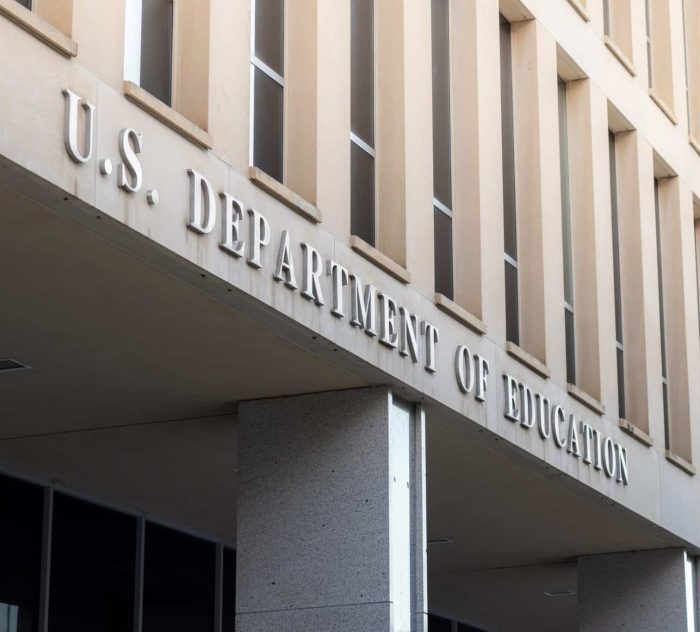On June 27, 2025, the United States Supreme Court issued its decision in Mahmoud v. Taylor, 606 U.S. ___ (2025), holding that the Montgomery County Board of Education’s introduction of LGBTQ+-inclusive storybooks into its elementary school curriculum without prior notice to parents or the opportunity for parents to opt their children out of the curriculum violated the Free Exercise Clause of the First Amendment.
Facts of the Case
During the 2022-2023 school year, the Board of Education (“Board”) for Montgomery County Public Schools in Maryland introduced several storybooks containing LGBTQ+-inclusive themes, such as same-sex marriage and gender identity. The five storybooks at issue were approved by the Board for use in kindergarten through fifth grade and incorporated into the English and Language Arts curriculum in the same manner that other books were used. Teachers were to recommend the books to students who might enjoy them, offer the books as options to various reading groups, have the books read aloud in class, and otherwise make the books available for students to find on their own. Teachers were also given a guidance document on how to respond to student inquiries about the themes in the storybooks.
Initially, parents were given notice when the inclusive storybooks would be used and had the ability to opt their children out of the instruction. However, the growing number of parents choosing to opt their children out became increasingly burdensome for the schools and soon prompted the Board to rescind its notice and opt-out policy. More than 1,000 parents petitioned for the restoration of the notice and opt-out policy, but the Board refused.
Several parents of various religious faiths sued the Board, alleging that the failure to provide advanced notice and the opportunity for parents to opt their children out of the curriculum involving the inclusive storybooks violated their right to the free exercise of their religion.
Extension of Yoder
The First Amendment to the United States Constitution states, in part, that “Congress shall make no law . . . prohibiting the free exercise” of religion, under which parents have the right to direct the religious upbringing of their children.
Writing for the majority of the Court, Justice Samuel Alito acknowledged past Supreme Court precedent that “the government is generally free to place incidental burdens on religious exercise so long as it does so pursuant to a neutral policy that is generally applicable.” However, when the burden is of such a “special character” that it poses “a very real threat of undermining” parents’ efforts to instill their preferred religious beliefs and practices in their children, even a neutral policy with general application can violate the First Amendment.
To reach its decision in Mahmoud, the Court relied on its 1972 decision in Wisconsin v. Yoder.[1] In Yoder, the Court held that Wisconsin’s compulsory attendance law could not force Amish parents to send their children to school past the eighth grade because “exposing Amish children to worldly influences . . . contrary to [their] beliefs” would “substantially interfer[e] with the religious development of the Amish child.”
The Mahmoud Court concluded that the burden on religious exercise imposed by the inclusive storybooks was akin to the burden in Yoder. According to the majority, the normative messaging of the storybooks and related instruction were “clearly designed to present certain values and beliefs as things to be celebrated and certain contrary values and beliefs as things to be rejected.” Like the compulsory attendance law in Yoder, the storybooks “impose[d] upon children a set of values and beliefs that [were] ‘hostile’ to their parents’ religious beliefs,” going “far beyond mere ‘exposure’” to objectionable ideas.
Justice Alito also explained that any disruption caused by parents’ opt-outs was a product of the Board’s own making. The Board already provided parents with the option to opt their children out of the family life and human sexuality unit of instruction. The Court suggested that the Board could arrange for the instruction of the storybooks in a similar manner to minimize any disruption.
Thus, the Board’s introduction of the inclusive storybooks and its decision to disallow opt-outs substantially interfered with the religious development of the children in violation of the parents’ free exercise rights under the First Amendment.
Implications for Public Schools
The Supreme Court’s decision in Mahmoud does not categorically bar the introduction of LGBTQ+ concepts into curriculum and instruction, and the Court stated that any judicial review will be a fact-intensive inquiry. Storybooks and instruction that incidentally and objectively mention these themes without the “normative” messaging may be permissible. The Court also stated that the age of children is “highly relevant,” recognizing that young children are more impressionable and susceptible to coercion. What constitutes substantial interference with the religious development of an elementary school student may not be the same for a high school student.
Nonetheless, for curricular content that substantially interferes with students’ religious development, public schools should give parents advanced notice and the opportunity to opt their children out of the instruction. To limit the extent of the disruption caused by opt-outs, school districts could confine instruction to a discrete unit. During such a unit, and at other times of such instruction, schools should consider how to properly accommodate the students whose parents have opted their children out.
In addition to the requirements under the United States Constitution, schools may have further obligations imposed by state law. For example, North Carolina prohibits “[i]nstruction on gender identity, sexual activity, or sexuality . . . in grades kindergarten through fourth grade[.]”[2] In North Carolina and states with similar legislation, introducing these topics could violate state law even if parents were provided with prior notice and an opportunity to opt out.
[1] 406 U.S. 205 (1972).
[2] N.C. Gen. Stat. § 115C-76.55.



